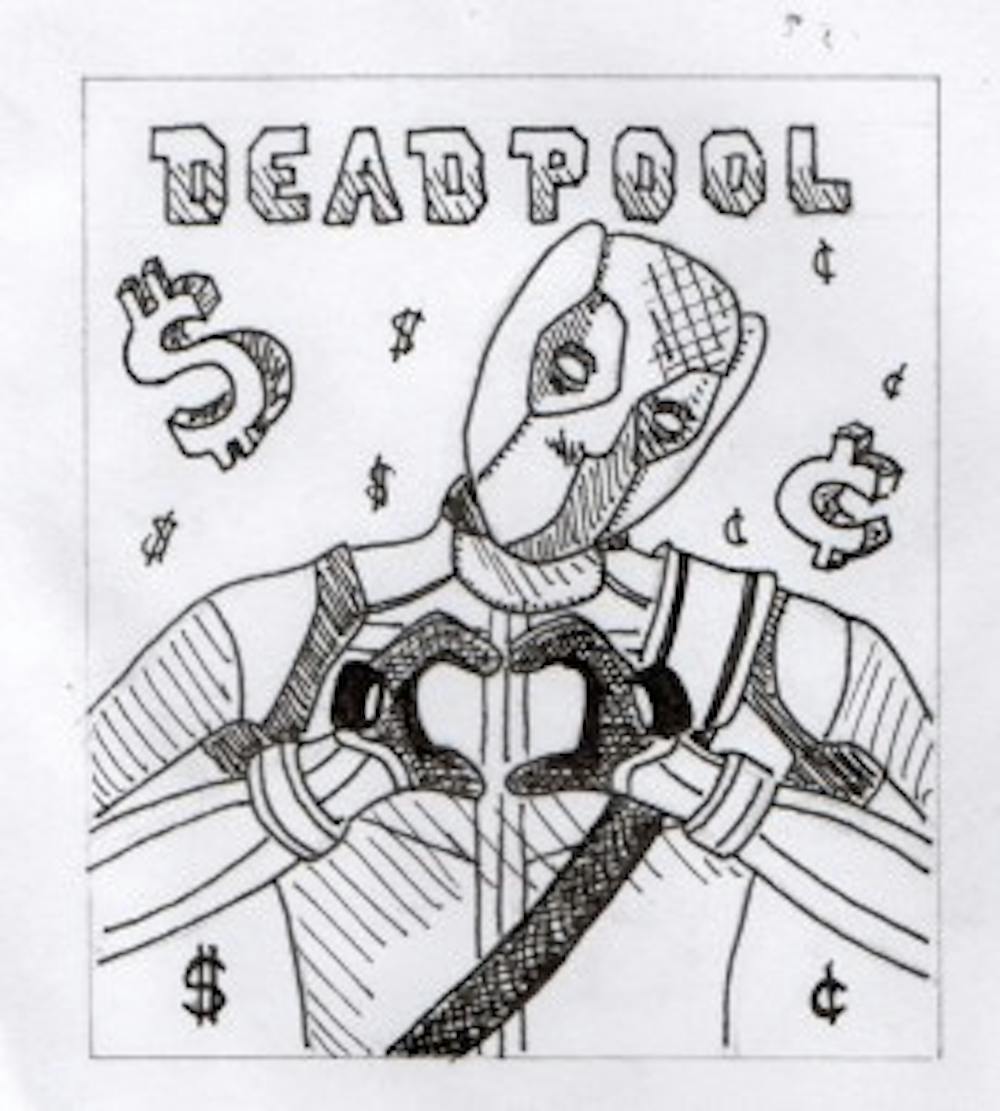Deadpool is an important film not just because it is a neoclassical example of American entertainment at its finest, but because it broke the record for highest grossing movie ever released in the month of February — and it was R-rated. Trust me this movie is a game-changer. Here’s why:
Hollywood has been taking fewer and fewer risks over the past few years — squeaky clean and PG-13 reboots or sequels have dominated the big-budget action movie scene — and I think it’s due time for this trend to end. The studios’ rationale is simple: Get a PG-13 rating so the (expensive) movie has the broadest viewer base. Logically it makes for a safer investment. Under this rhetoric an R-rating for a big studio blockbuster is effectively a kiss of death. So the higher the film’s budget, the more the producer feels the need to keep the rating at PG-13. Here’s the problem with PG-13 blockbusters: They tend to feel like simple entertainment rather than bonafide stories. The difference between the two is grit. It is much easier to tell a compelling story within a narrative universe that feels real. The world is R-rated and gritty. Real people swear, bleed and f***. Movie settings that allow for all of this are inherently more compelling than their washed-out PG-13 counterparts. From a narrative standpoint it is far easier to create exciting villains if you have the artistic liberty to show them doing something shocking, graphic or monstrous. The villainous T-1000 from Terminator 2 would not have been nearly as ominous and menacing if the audience didn’t see him morph his liquid-metal finger into a long metal rod and impale an innocent prison guard through the head near the beginning of the film. Furthermore, a hero’s struggle is infinitely more engrossing if their suffering throughout the story arc is raw and graphic. A universe in which everything is permitted is fertile ground for a memorable story. Game of Thrones is a fitting example of this principle. The universe is so gritty that the story is completely unpredictable, and the show’s cult-like following is a testament to the narrative power of such adult content.
Having said all of this I am discounting all PG-13 movies. Interstellar and Inception are two compelling examples of movies that did incredible things with a PG-13 rating. However, the settings were completely wild and outlandish from the start, and the sheer amount of creative brainpower that went into the storylines was extraordinary. A major contributing factor as to why they were such good PG-13 movies is that they didn’t try to depict the “real” world. I’m not saying that an R-rating is the end-all, be-all to making a compelling movie but that accepting an R-rating puts many more arrows in writers’ and directors’ creative quivers.
Imagine if Band of Brothers, one of the foremost period pieces about World War II, was designed to be PG-13 because of the size of its budget alone. It would be supremely distasteful not to portray the barbarity and pervasive trauma those men experienced as accurately as possible. Hundreds of thousands of American soldiers were wounded in that war — which is why what the series did to depict gangrene, dismemberment and other disturbing gore was right. It was a shocking living nightmare in real life and thus deserved the same treatment on film if it was to be the honest period piece its producers set out to create. The series needed mature content.
While Deadpool is certainly not a reverent and highly artistic period piece, it also takes full advantage of its R-rating for incredible box office success. I previously said that this was an important film. Here’s why: Its success is concrete, irrefutable evidence of the demand for the R-rated action blockbuster. In fact, Fox just announced that the next standalone Wolverine movie is going to be R-rated, which is shocking because the previous six movies that featured Wolverine were all PG-13. A new trend has begun.
I hope the R-rated blockbuster trend doesn’t end with superhero movies. I know it’s logistically impossible, but who wouldn’t be tantalized by an R-rated Boba Fett Star Wars spinoff directed by Tarantino. Thankfully Hollywood now knows that this niche market is much larger than expected. This is both good and bad. Good because I’m ready to start getting excited about blockbusters again and bad because I don’t think Hollywood is going to be less risk-averse in the long run. Deadpool was a huge gamble which proved very fortuitous, but it wasn’t new intellectual property so unfortunately I don’t think the sequels and reboots are going anywhere. However, at least they’ll feel edgier and more compelling. I don’t know about you, but I’m definitely looking forward to buying more overpriced movie tickets.
Will Marcus is a senior political science and International Studies major from Austin. He is the Opinions Editor.





